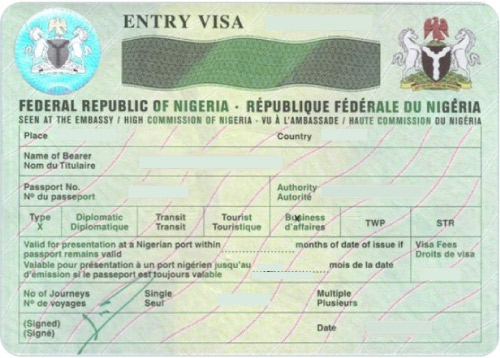Nigerian visa
BY TONYE IRIMS
As Africa’s largest economy and most populous nation, Nigeria possesses the potential to steer the continent towards unity, shared prosperity, and sustainable growth. Yet, this leadership role remains underutilised, partly due to restrictive policies on the free movement of African citizens. A visa-free access policy for African passport holders would be a transformative step—not just for Nigeria, but for the entire continent.
Driving African integration
The African Union’s Agenda 2063 envisions a continent where borders are seamless, enabling the free flow of goods, services, and people. Nigeria, as a cornerstone of Africa’s development, has an opportunity to take bold action by removing barriers to intra-African travel. By doing so, Nigeria would catalyse collaboration across industries, facilitate trade, and nurture the exchange of ideas, furthering the vision of a truly united Africa.
Advertisement
Unlocking economic potential
Visa-free access could serve as a powerful driver of Nigeria’s leadership in the African Continental Free Trade Area (AfCFTA). Entrepreneurs, investors, and skilled professionals would find it easier to engage with Nigeria’s economy, spurring innovation in key sectors such as technology, agriculture, and tourism. Rwanda, for instance, has seen significant economic benefits since adopting open visa policies, including increased business opportunities and stronger regional ties. Nigeria, with its vast resources and talent pool, stands to achieve even greater success.
Strengthening cultural unity
Advertisement
Nigeria is already a cultural giant, with Nollywood and Afrobeats shaping global perceptions of African creativity. Visa-free access would deepen cultural connections, allowing more Africans to experience Nigeria’s rich heritage firsthand. Festivals, concerts, and cultural events could become conduits for mutual understanding and unity, enhancing Nigeria’s soft power while strengthening African solidarity.
Addressing challenges
Critics may argue that visa-free policies could exacerbate security risks or strain public resources. These concerns are valid but manageable. By leveraging modern technology such as biometric border management systems and enhancing collaboration with regional partners, Nigeria can ensure safe and regulated migration. Additionally, pilot programs can be introduced to assess the policy’s impact before full implementation.
Reaffirming leadership
Advertisement
Adopting a visa-free policy for Africans would signal Nigeria’s commitment to Africa’s shared future. It would demonstrate bold leadership in building a continent where borders unite rather than divide, paving the way for inclusive growth and prosperity.
Call to action
The time to act is now. Nigeria’s government, in collaboration with regional organisations, should initiate frameworks for visa-free access and engage stakeholders to address potential challenges. This visionary move will not only elevate Nigeria’s standing but also set a precedent for African integration and leadership in the global arena.
By embracing this policy, Nigeria can lead the charge towards a stronger, more interconnected Africa—one that thrives on unity, opportunity, and shared success.
Advertisement
Tonye Irims can be contacted via [email protected]
Advertisement
Views expressed by contributors are strictly personal and not of TheCable.









